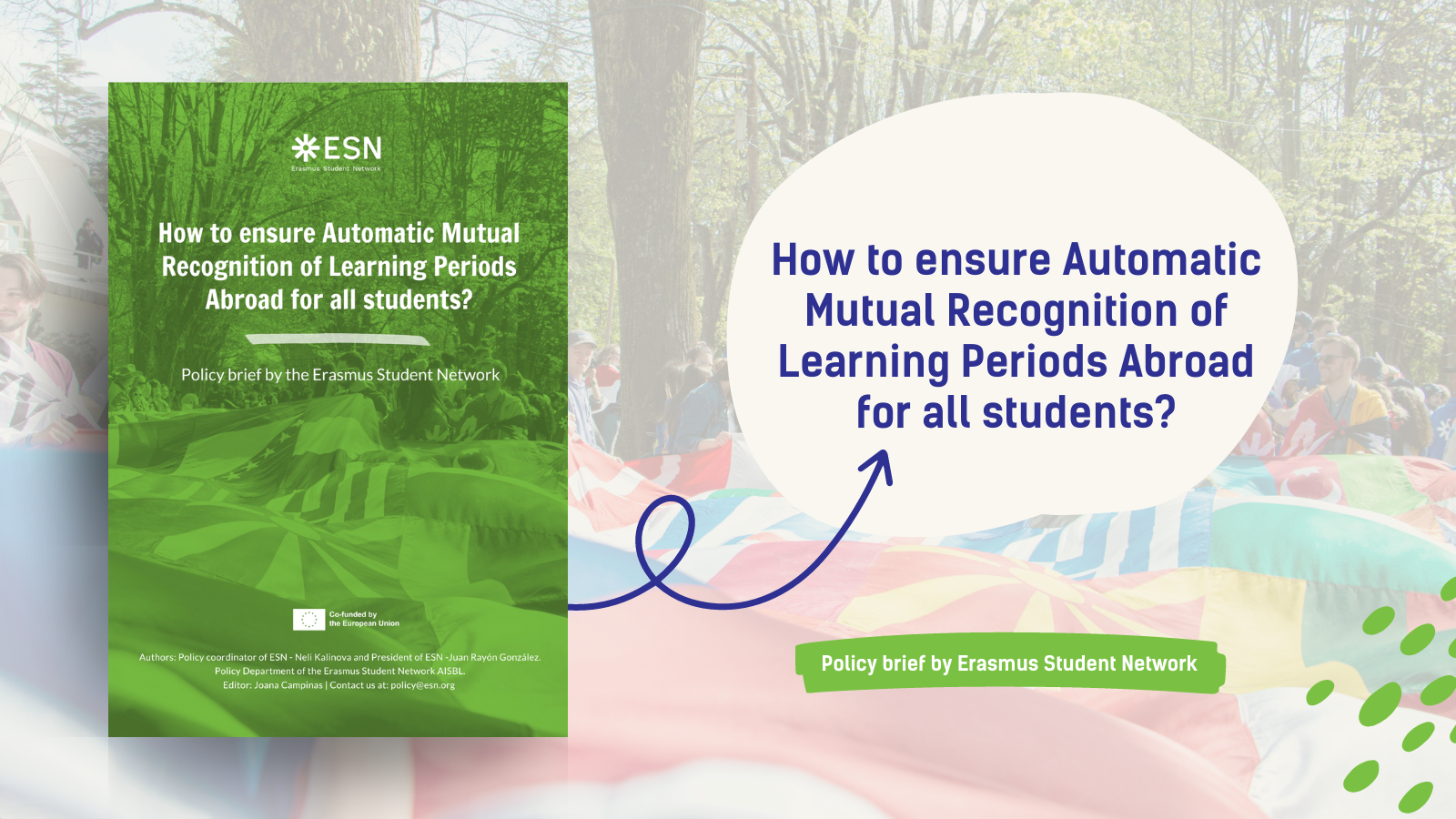
Automatic recognition of learning outcomes from a period of study abroad is one of the core elements that will encompass the achievement of the European Education Area by 2025. Moreover, automatic mutual recognition is a key flagship of the European Strategy for Universities, and it is one of the major requirements in the Erasmus Charter for Higher Education (ECHE) that higher education institutions (HEIs) commit to. A number of steps have been taken to put this into practice ever since the Council Recommendation on automatic recognition of learning periods abroad from 2018 has been adopted, but there are still significant national differences that hinder seamless learning mobility and make the 2025 goal seem harder to achieve.
This short piece condenses ESN’s perspective on the recognition of learning periods abroad, reflecting on data from the SIEM research report (2021) and the ESNsurvey - XIV edition (2022), as well as preliminary data from the ESNsurvey XV, which at the time of writing already had more than 5000 answers from students. The policy proposals in this piece are based on some of ESN’s last publications.
In order to get the latest data from the students, ESN is currently conducting the XV edition of the ESNsurvey, which is open for responses by mobile and non-mobile students until the 1st of August 2023.
Please help us to disseminate the survey among students!
You can access all the information here.
The ESNsurvey XV is gathering both quantitative and qualitative data on the recognition of learning outcomes of a study period abroad, which will help ESN to monitor the implementation of the recognition commitment halfway through the Erasmus+programme period. The survey analyses Credit recognition from different perspectives, both in terms of the results obtained by exchange students and the perceptions of mobile and non-mobile students. Some preliminary considerations are included in this piece.


Follow ESN